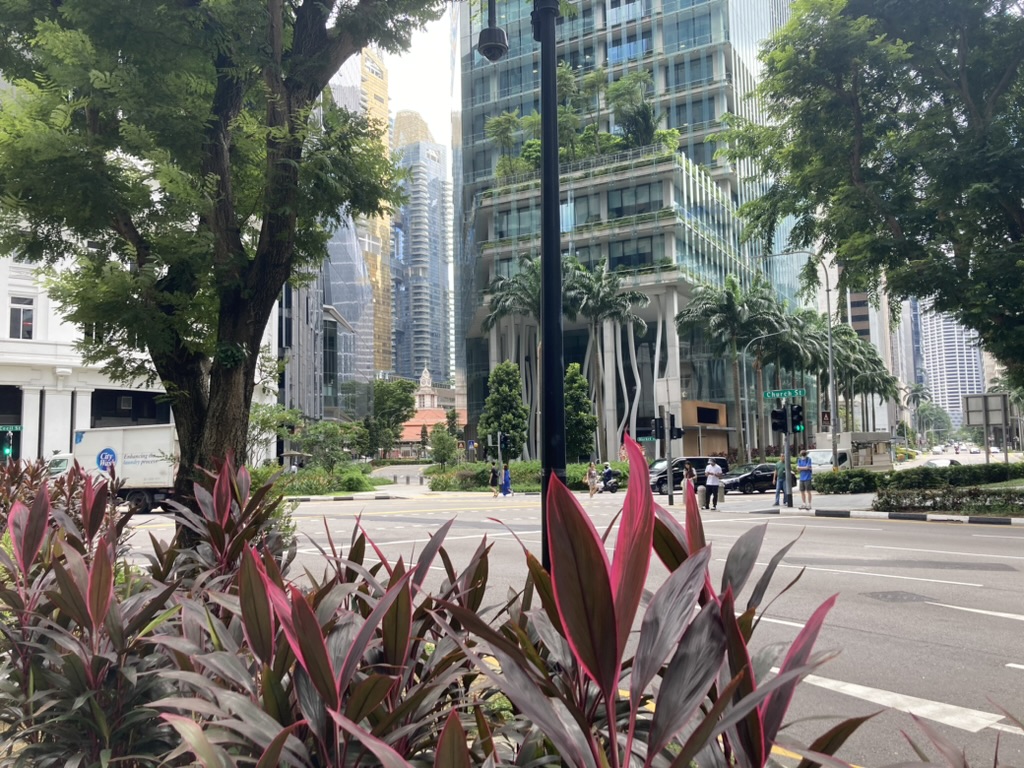 |
I just spent three days at an excellent symposium, Ethics of autonomy in smart cities, held here in Singapore. In the final discussions a question came up about whether we even need or should reject smart cities.
Normally I would think this was an excellent question. My entire entry into first AI ethics and then digital policy and governance came by way of trying to point out that the A in AI stood for "artefact" – a thing that someone (some legal person) was responsible for designing, and another (or possibly the same) person was responsible for operating. We have choices to make, and what we do matters.
However, there was as distinction being made at this conference (most clearly by Marie-Hélène Parizeau) between open and closed smart cities. Marie-Hélène claims that the model for all closed smart cities is the Googleplex – that the design of smart cities is fundamentally based on replicating elite experience, but also capturing confining and controlling that elite – making its citizens (or residents) as exchangeable as possible, and directing their efforts.This is the closed model of smart cities. The open one is presumably bottom up, and being constructed out of citizens their apps and smartphones. This is happening pervasively and globally. There is still a role for governments here too, but with relatively empowered residents it is much more evident that we constitute our cities, and that our governments are appointed to coordinate, serve, and amplify us, not to be a mechanism of autocratic control.**
So my answer to the closing discussion was surprisingly close to technodeterminism. I think I've hit its limits now, and can see what's actually entailed. First, of course we can reject the digital, and maybe one day we will. If the political costs are too high, if we are surveilled and disappeared, if we cannot innovate, if we just run out of resources. I very much worry about the destruction of paper records, and not only because digital ones can be altered en masse, but because digital ones may be more transient. But in the meantime, while we are digital...
It seems to me that whenever we innovate, we fundamentally alter two landscapes: the moral and the economic.Morality requires tradeoffs. Rights are often in tension, for example healthcare versus public education versus adequate / fair housing and employment. These things all take resources to achieve, and thus exist in tension with each other. Though of course sometimes mutual solutions exist, which implies not all tradeoffs are zero sum. Nevertheless, whenever we have new capacities (or whenever available resources shift), which tradeoffs are the best for achieving any particular set of goals will also change. This is the landscape of morality shifting.
Similarly with money and power. When capacities change, what those individuals who (or processes that) only (or even partially) seek one or both of these (money and power) will find new pathways to those goals. This is the landscape of economics.
The threat of the closed city is that homogeneity is both cheap (mass produced) and easier to predict and therefore control. It also appears at least on the surface to be egalitarian, though of course often which homogeneity we get is not going to impact all of us identically. But its apparent egalitarianism lends itself to populism. If people whether through absence of choices or fear of surveillance find no way to create identities of which they can be proud, the society becomes depressed, fragile, and less productive. Powers that want to stay powerful should want heterogeneity, with its economic innovation, and its secure, optimistic, collaborative, and ambitious populations.
But how these cities are organised, and how powerful or fragile they are, are decisions we can make. This is why work in governance (including digital governance) is well worth doing.
** At the same meeting, Yumin Joo said something interesting about South Korea that I think may also apply to Germany and the UK at a minimum: she said most cities going through the "smart" transition are losing even local authority (let alone resident autonomy) to the national government, but Seoul (the capital) is full of bottom-up initiatives, including of governance.
I think in the UK, Germany, and Italy at a minimum there are more than one city in a position like that of Seoul, but certainly being a capital makes it more likely. Many holders of power are actually living there and are therefore more empathetic to the residents. Certainly both patterns of city exist in the UK and Germany, though perhaps less of the autocratic top down is done specifically via cities, and more of that is done horizontally nationally against the poor (in the UK) and the less-empowered cities are simply neglected.
 |
| me on the balcony where we ate our lunches & dinners |
 |
| the same picture, uncorrected. How is the world different because iPhones let you straighten images? |



Comments